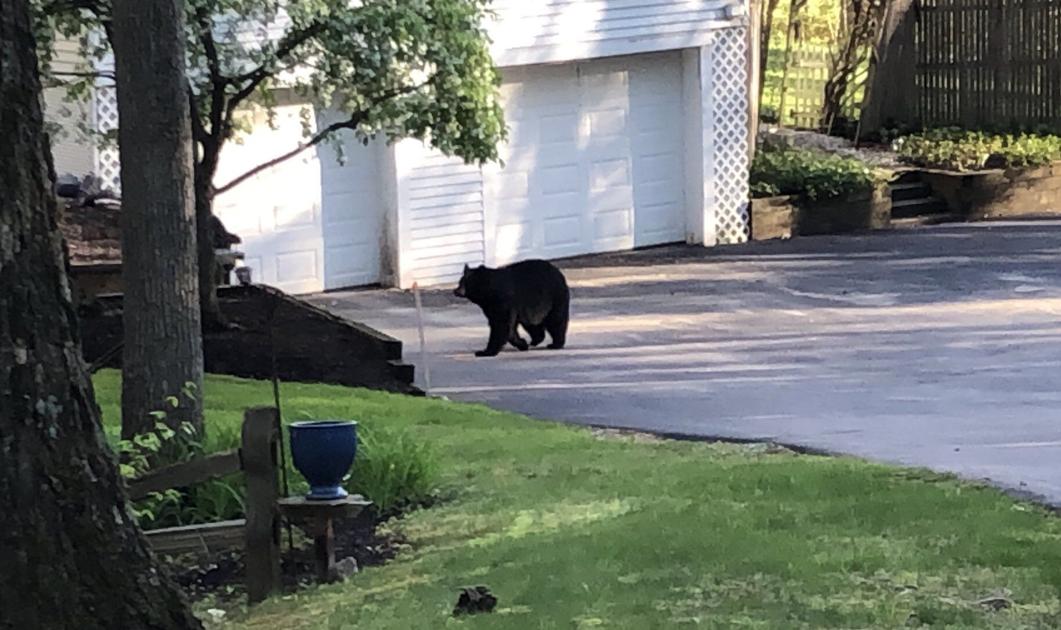
An escalation of conflicts between bears and people this summer has been caused by the weather and human behavior, a Fish and Game official said.
“It appears that the abnormally dry conditions of the spring and early summer reduced the quantity and quality of herbaceous vegetation which is a significant component of a bear’s diet during May and June,” Fish and Game’s Bear Project Leader Andrew Timmins said in a news release.
“The lack of a soaking rain has also reduced or delayed wild blueberries and raspberries, two important crops which bears rely on for their summer feeding. When these natural foods are lacking, bears will exploit human-related food opportunities, which increases their presence in residential areas.”
It is common to see an increase in bear complaints during dry years, including most recently the summers of 2012 and 2016, he said.
Timmins said the COVID-19 public health emergency has kept more people at home, increasing the amount of human “food attractants” available to bears in people’s backyards. More people continued to feed wild birds later into the summer season, he said, while others started backyard chicken coops and “free ranged” their poultry.
In addition, New Hampshire’s campgrounds reopened and became very busy in late June, resulting in more frequent calls as bears began visiting campsites looking for food.
“Most campgrounds in the Granite State do a very good job containing garbage and encouraging best management practices related to food storage around campsites,” said Timmins. “However, campgrounds that are less stringent tend to have more bear issues.”
He said natural food availability has begun to improve in many areas as raspberries and cherries ripen and indications are for good blackberry, apple, and acorn crops this fall. But Timmins said people need to remain vigilant and responsible about birdfeeders, accessible garbage, inadequately secured chickens, barbecue grills, and pet foods.
“Bears have an extremely acute sense of smell and long memories,” said Timmins, “so we really need the cooperation of residents and visitors this summer and fall to prevent bears from returning to locations where they previously found food, because over time bears will lose some of their natural aversion to humans. Bears are much better off in the wild, and we need to do our part to not entice them near people with food attractants.”
Timmons gave these tips:
• Secure all garbage in airtight containers inside a garage or adequate storage area, and put garbage out on the morning of pickup, not the night before. If using a dumpster, inform your dumpster company that you need one with metal locking tops and doors that are inaccessible to bears and other wildlife.
• Do not put meat or other food scraps in your compost pile.
• Don’t leave pet food dishes outside overnight.
• Clean and store outdoor grills after each use.
“Finally, never deliberately feed bears,” the news release says. “You will be encouraging these animals to rely on human-related foods which will deteriorate their wild behavior and reduce their chances of survival.”
For questions or advice regarding bear-related issues, call a toll-free number coordinated jointly by the U.S. Department of Agriculture’s Wildlife Services and the New Hampshire Fish and Game Department: 1-888-749-2327 (1-888-SHY-BEAR).
August 03, 2020 at 06:00AM
https://www.unionleader.com/news/safety/dry-summer-increases-conflicts-between-bears-humans/article_fa9b380d-4b84-5d39-8e80-d44113137255.html
Dry summer increases conflicts between bears, humans | Public Safety | unionleader.com - The Union Leader
https://news.google.com/search?q=dry&hl=en-US&gl=US&ceid=US:en

No comments:
Post a Comment